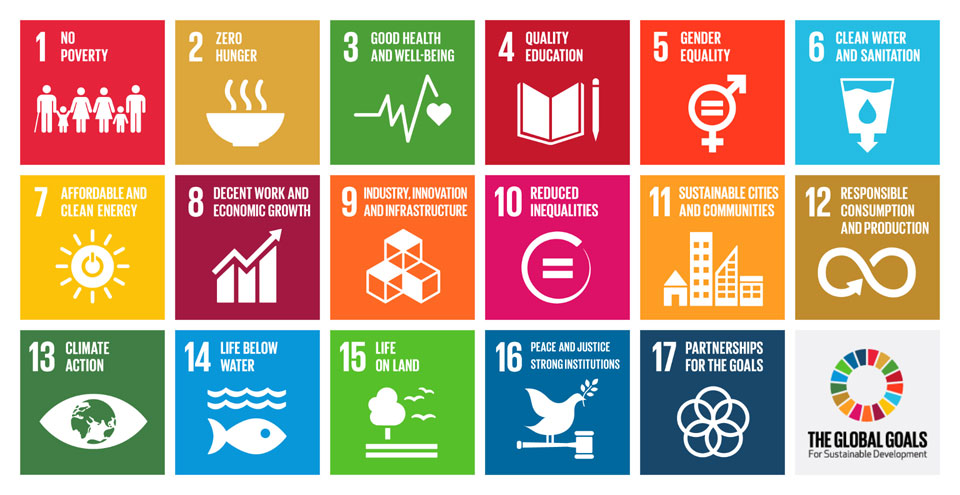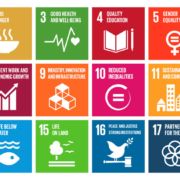The Sustainable Development Goals one year on: a great opportunity for the church to grasp
 How do you transform the world? Marx thought it would be by the revolution of the proletariat regaining the means of production from the bourgeoisie. Motorola thought it would be ensuring that every man, woman and child on the planet had their own mobile phone number, while Facebook expect it to be by the ubiquity of their social network in everyone’s lives.
How do you transform the world? Marx thought it would be by the revolution of the proletariat regaining the means of production from the bourgeoisie. Motorola thought it would be ensuring that every man, woman and child on the planet had their own mobile phone number, while Facebook expect it to be by the ubiquity of their social network in everyone’s lives.
The United Nations have pinned their transformational agenda on the Sustainable Development Goals. On this blog we have watched and commented on the process that lead from the Millennium Development Goals (2000-2015) to the SDGs (2015-2030). The SDGs are truly comprehensive in their transformation aims (if occasionally a bit vague or fluffy). Their primary aims are that by 2030 the world will:
- end poverty and hunger,
- achieve health and wellbeing for all,
- give everyone access to quality education,
- achieve full gender quality,
- give universal access to affordable and clean energy,
- ensure everyone has decent working conditions in an environment of economic growth,
- create a framework for the development of industrial innovation and infrastructure,
- reduce all inequalities within nations,
- create sustainable cities and communities
- in every nation, mobilise the world to take action on climate change and a sustainable marine and terrestrial environment,
- grant peace and justice for all through strong global institutions
- and create a global partnership to make sure all of this happens!

There is little here that we would disagree with in principle. But oh my, are they ambitious and all-encompassing! I cannot think of many national governments, even with a strong electoral mandate, that would dare to have a manifesto laden with such high-expectations, let alone a disparate global community under the fragile umbrella of the UN.
Some of these seventeen goals have very specific targets; others are remarkably vague (eg. ‘ensure that people everywhere have the relevant information and awareness for sustainable development and lifestyles in harmony with nature.’). In fact there are 169 targets or indicators to be achieved by 2030, and a complex system of standardised metrics to measure progress towards them. Many critics see this proliferation of goals and targets as little short of pointless and they may have a point. However, would a global community with no measureable targets to aim at ever achieve anything?
Of course, transformation is not just the provenance of the Marxists, US telecommunications and media corporations or the UN. At the heart of the Christian Gospel is a God who is busy renewing and redeeming a broken and hurting humanity and Creation by way of the Cross and the work of his Holy Spirit through his church around the world. Some Christian thinkers have pointed out that the biblical vision of a world without pain and suffering, of freedom, life and joy strongly echo the aspirations of the SDGs. However, others have pointed out that the biblical vision is that Babylon will be overthrown as part of the establishment of the Kingdom – Babylon being theological code for the current global social and political system, whether the Rome of the early church or the Western hegemony that currently dominates.
So is there a case for a Christian engagement with the SDGs? The answer has to be yes, but on our terms. The UN system does want to work with us, but it is also realising it needs to work with us rather than imposing its ideas and controlling us. Of course, there is still control – he who pays (or funds) the piper calls the tune. Nevertheless, there is room for partnership if we are as ‘wise as serpents yet innocent as doves.’
The church and Christian Faith Based Organisations (FBOs) are all over the world. We are already embedded within and engaged with communities in every corner of the Earth. We are not just engaged with the poor – most of the global church IS the poor and disenfranchised. We have a voice that can speak for the voiceless, but we (in the West and the North) have to listen. It is the church in the developing world that needs to be heard, that needs to be allowed to take the lead and to challenge the church in the West and the North to work with them, pray with them, and where necessary resource them, but on their own terms.
Furthermore, we need great collective wisdom. While much in the SDGs is admirable, the devil is always in the detail, so we should never compromise the values of God’s kingdom nor our mandate to proclaim the good news of Jesus to every corner of creation. In cooperating with the UN and major donors and governments, we should always be upfront about our values and priorities. . Co-belligerence is good but also has its limits.
In short, the SDGs are a great opportunity for the church to engage at all levels in the transformative work of the gospel of Jesus Christ in every corner of the globe. If the call of Christ’s church happens to coincide with the agenda of the UN and secular funders at this moment in time, that is great – we will work together. God is bigger than the church and his Kingdom is being worked out in the ‘secular’ as well as the ‘sacred’. But if our agenda and that of the wider world no longer coincide, then we will continue to do the work to which we have been called regardless of wider agendas, because in the end we serve the highest authority.





Leave a Reply
Want to join the discussion?Feel free to contribute!